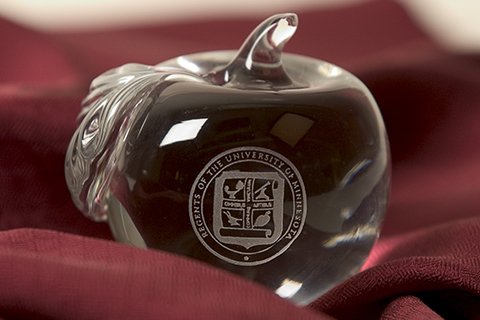CSE researchers receive University support for work on clean water and equitable communities

Awards are part of the University's Grand Challenges investments
MINNEAPOLIS / ST. PAUL (10/25/2017) — Three University of Minnesota College Science and Engineering (CSE) researchers are part of a team that has received a Grand Challenges research award for their work on using wild rice as a flagship for assuring clean water and equitable communities. Another CSE faculty member has been named a 2018-19 Research Scholar to study clean water and sustainable ecosystems.
The internal research investments, announced by Executive Vice President and Provost Karen Hanson, total $2.96 million in support over two years. The six interdisciplinary projects encompassing more than 120 faculty and external partners will engage faculty across the campus in new or expanded work to address complex issues related the University’s five Grand Challenges focus areas.
Department of Earth Sciences Assistant Professors G.-H. Crystal Ng and Cara Santelli, and Department of Earth Sciences Research Associate Amy Myrbo, are part of an interdisciplinary team that has received a $720,000 research award for their project “Wild Rice in Minnesota and the Great Lakes Region: A Flagship for Environmental Preservation and Indigenous Resource Sovereignty.” Other researchers who are part of the group include Mark Bellcourt, College of Food, Agricultural and Natural Resources Office of Diversity and Inclusion; Mae Davenport, Forest Resources; Daniel Larkin, Fisheries, Wildlife, and Conservation Biology. The University’s Institute on the Environment is providing additional funding support.
Department of Civil, Environmental and Geo- Engineering Associate Professor Kimberly Hill-Malvick has been named a Research Scholar for the “Clean Water and Sustainable Ecosystems-Just and Equitable Communities Intersection Collaborative.” Support for the Research Scholar Collaborative groups includes a 50-percent time appointment, physical space and logistics, and linkages to University and external information and resources. Other members of collaborative include Oscar Garza, Pharmacy Care & Health Systems; Kathryn Grace, Geography, Environment and Society; Mary Hermes, Curriculum & Instruction; Daniela Sandler, Architecture; and Diane Willow, Art.
The Grand Challenges investments were made from reallocations previously earmarked for strategic plan investments, augmented by support from the Office of the Executive Vice President and Provost and key campus partners.
Funding partners for the interdisciplinary team awards are the Institute on the Environment, which provided funds for water/ecosystem-related investigations; and the University Metropolitan Consortium, which provided support for two of the three projects related to just and equitable communities.
Phase 1 of Driving Tomorrow research investments in fall 2016 awarded a total of $3.6 million to 29 teams of faculty across all five of the University’s Grand Challenges areas of special focus. Like the first phase, Phase 2 of the Grand Challenges Research Initiative supports the strategic vision of a more integrative and deeply engaged campus collaboratively addressing critical societal issues.
For more information and a listing of all of the Phase 2 Driving Tomorrow awards, visit the University of Minnesota Driving Tomorrow website.
